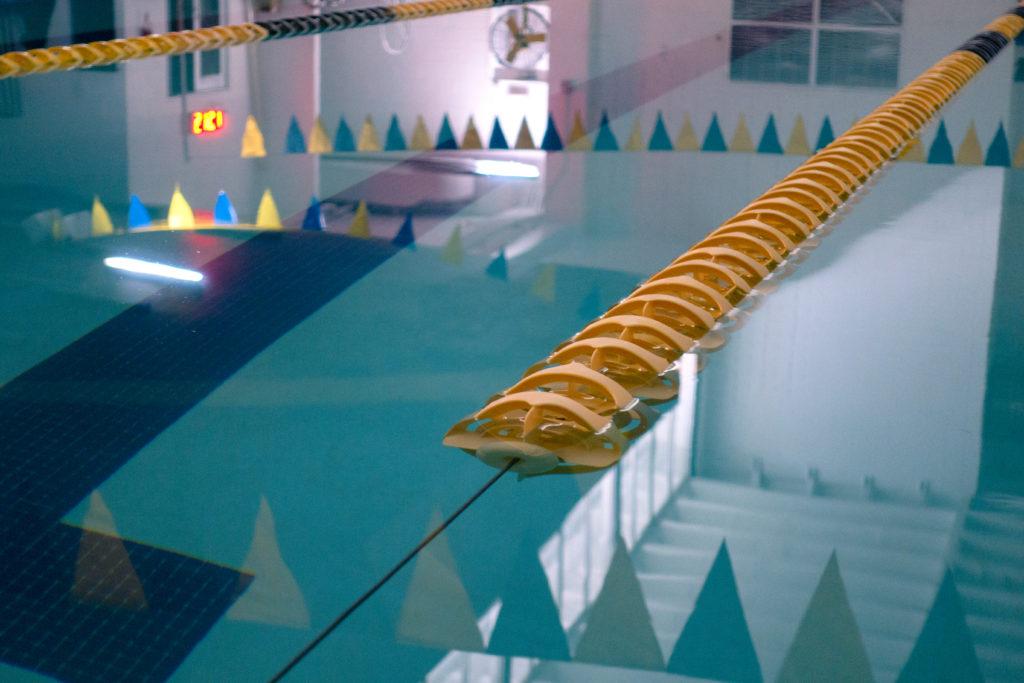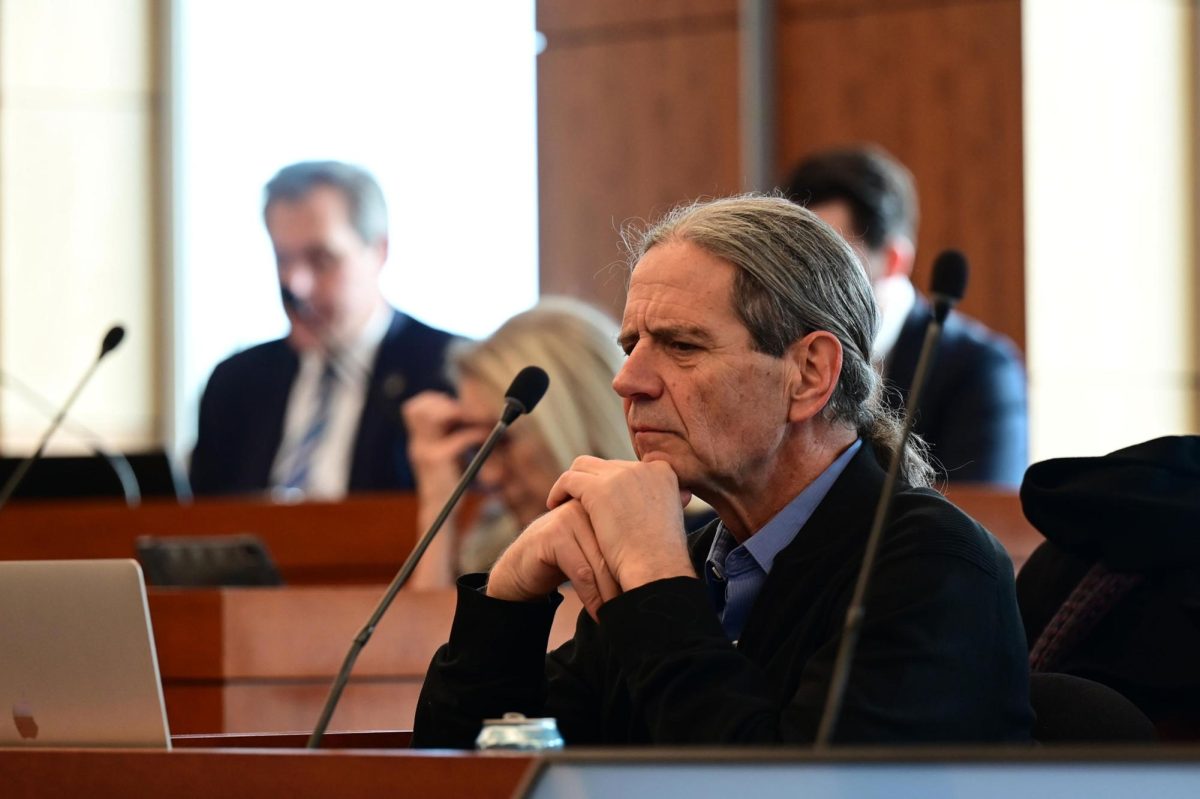Air quality issues in the Smith Center’s pool disrupted practices for club water sports last week, leaving teams with fewer options to prepare for competitions.
Officials said the pool’s chemical system failed recently, forcing club teams to cancel, delay or relocate practices that were originally scheduled there. University spokesperson Crystal Nosal said officials ordered a new “chemical integration system” for the pool to fix the air quality issue, and they will install the system Wednesday following a six-week manufacturing and shipping process.
She said officials had to manually add chemicals to the pool for cleanliness, which is a lengthy process. Club sports leaders said athletes have experienced respiratory issues and irritated eyes while in the pool, which they blame on the chemical imbalance.
Nosal said officials are limiting how many people can use the pool throughout the week to make it easier to clean and maintain because of the increased time it takes to put chemicals in manually.
“Currently chemicals are being manually maintained and due to the complexity, the decision was made to simplify the process,” she said in an email. “With adding a larger bathing load, manually adding chemicals gets difficult due to schedule.”
Nosal said officials will lift occupancy limits in the pool after they install the new chemical system, and the current manual transfer of chemicals to the pool has ensured it is safe to use. She said club teams were notified that their practices were delayed, and the teams have not held any practice off campus.
“The safety of our occupants is always a top priority, and the pool has been safe to occupy at all times,” she said. “All occupants have the ability to go off-site to practice and none have done so.”
Nosal declined to say if any groups are currently allowed to use the pool.
Peter Brukx, the president of the club swim team, said officials cancelled the team’s practices at the Smith Center last week until after Thanksgiving because of air quality issues caused by the chemical system failure. Brukx said the air quality was poor because the Smith Center didn’t have adequate air circulation, which caused chlorine chemicals to cluster around the indoor space.
“The pool wasn’t cleaning the air well enough, it wasn’t circulating the air well enough and the chemical balance in the pool was off,” he said. “So you end up with the air quality totally out of whack because the chemicals are out of whack.”
Brukx said officials told the team last Monday that all Smith Center practices would be canceled and offered no immediate backup plan for the team, which has an upcoming meet at the University of Pittsburgh this weekend. Brukx said several of the team’s swimmers were forced out of the pool because of coughing fits from the poor air quality during a practice last month.
“We had one practice where multiple of our swimmers were out of the pool coughing, just because the air quality was so bad,” he said. “They told us they’d be canceling all our practices until Thanksgiving and they didn’t have an immediate option for us.”
Brukx said members of the team are developing plans to practice in Arlington for the national championships, which 10 swimmers qualified for, until the Smith Center is free to use.
Brukx said officials told the team on Friday that it could practice at the Lerner Health and Wellness Center’s pool for an hour and a half every Wednesday until the issues were fixed, a drop-off from the three weekly practices that used to be held at the Smith Center before the issues arose. He said the three-lane pool at Lerner was relatively small in comparison to the eight-lane Smith Center pool, more than doubling the number of people who must share each lane during practices.
“We have around 20 to 25 people that will regularly come to practices, and that means there’s essentially eight people per lane,” he said. “So it’s a pretty cramped environment.”
Brukx also said the heating system for the pool at Lerner was broken, leaving the temperature significantly colder than normal competitive standards. He said the pool’s temperature was about 73 degrees Fahrenheit on Tuesday, while the American Red Cross’ pool temperature guidelines say the temperature should be about 78 to 82 degrees for “intense” activity.
“When you’re in water, every degree difference, you feel a lot more,” he said. “It’s not like a one degree difference in air, you feel it a lot more because you’re submerged in it.”
Abigail Cate, the vice president of the club water polo team, said the cancellation of practices meant her team had no place to practice for most of last week.
Cate said the air quality issues were present in September when the team started practices, and they have since spoken to recreation officials about fixing the chemical problems. She said officials didn’t respond to concerns about the pool quality until the varsity swim team coach complained about it late last month, which led to the cancellation of club team practices and the purchase of a new chemical system.
“We were like, ‘Our players are having respiratory issues, like it’s burning our eyes,’” she said. “And they didn’t do anything about it until last week, when the varsity swim coach complained about it.”








